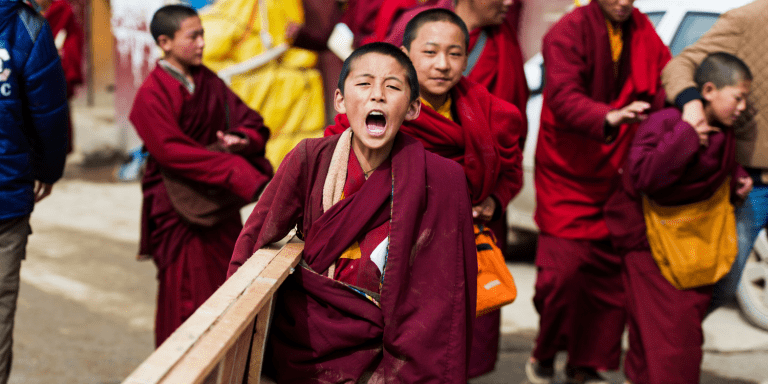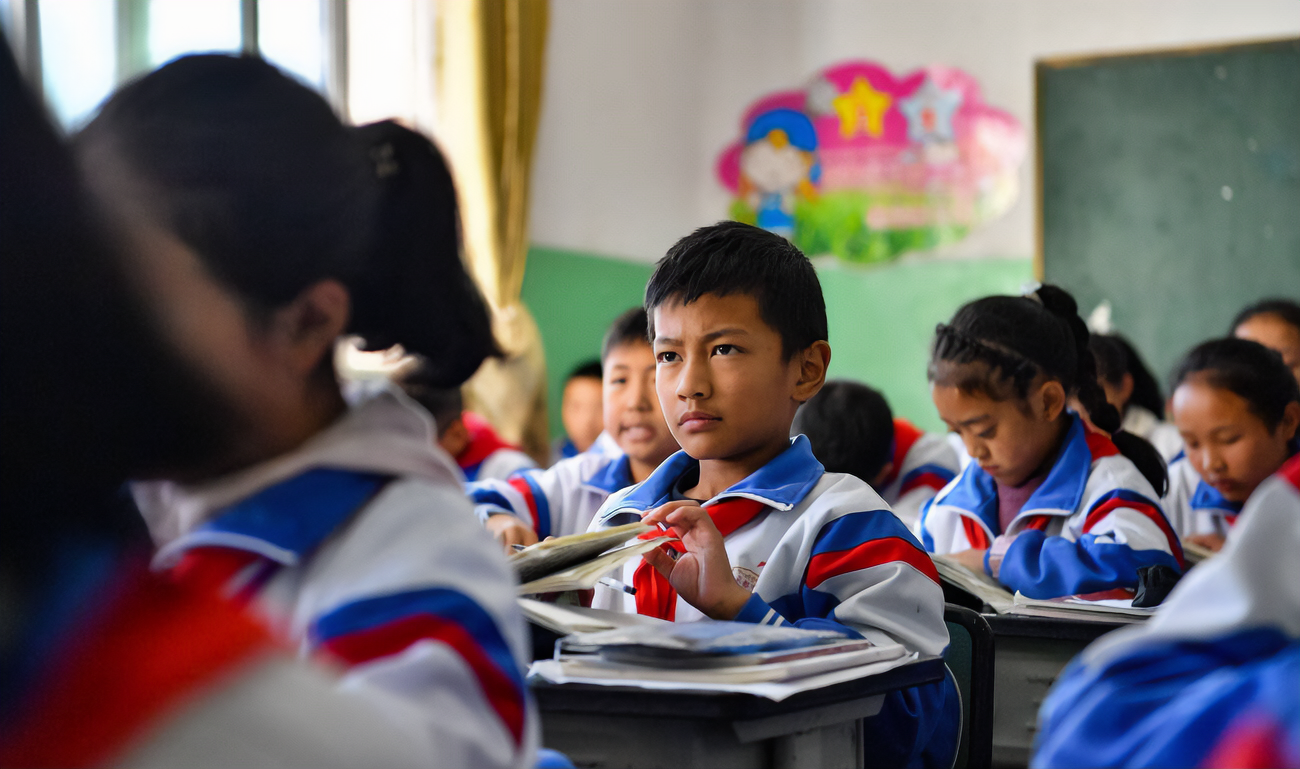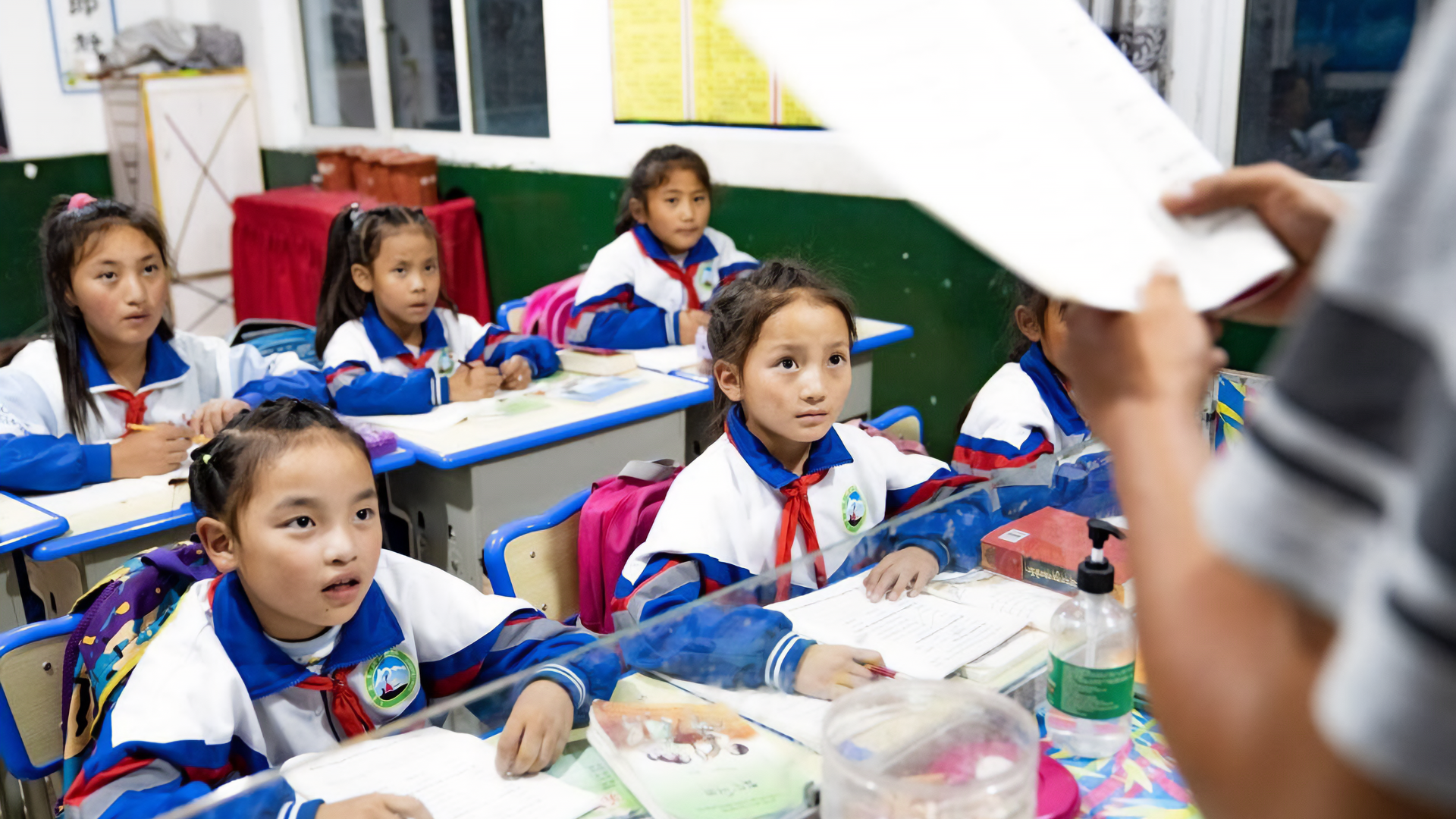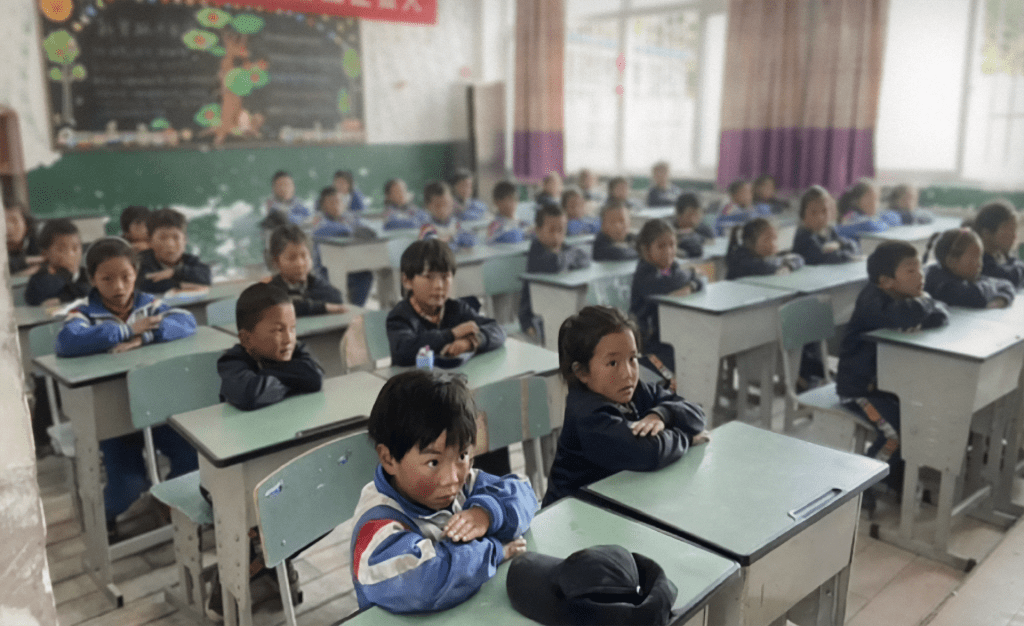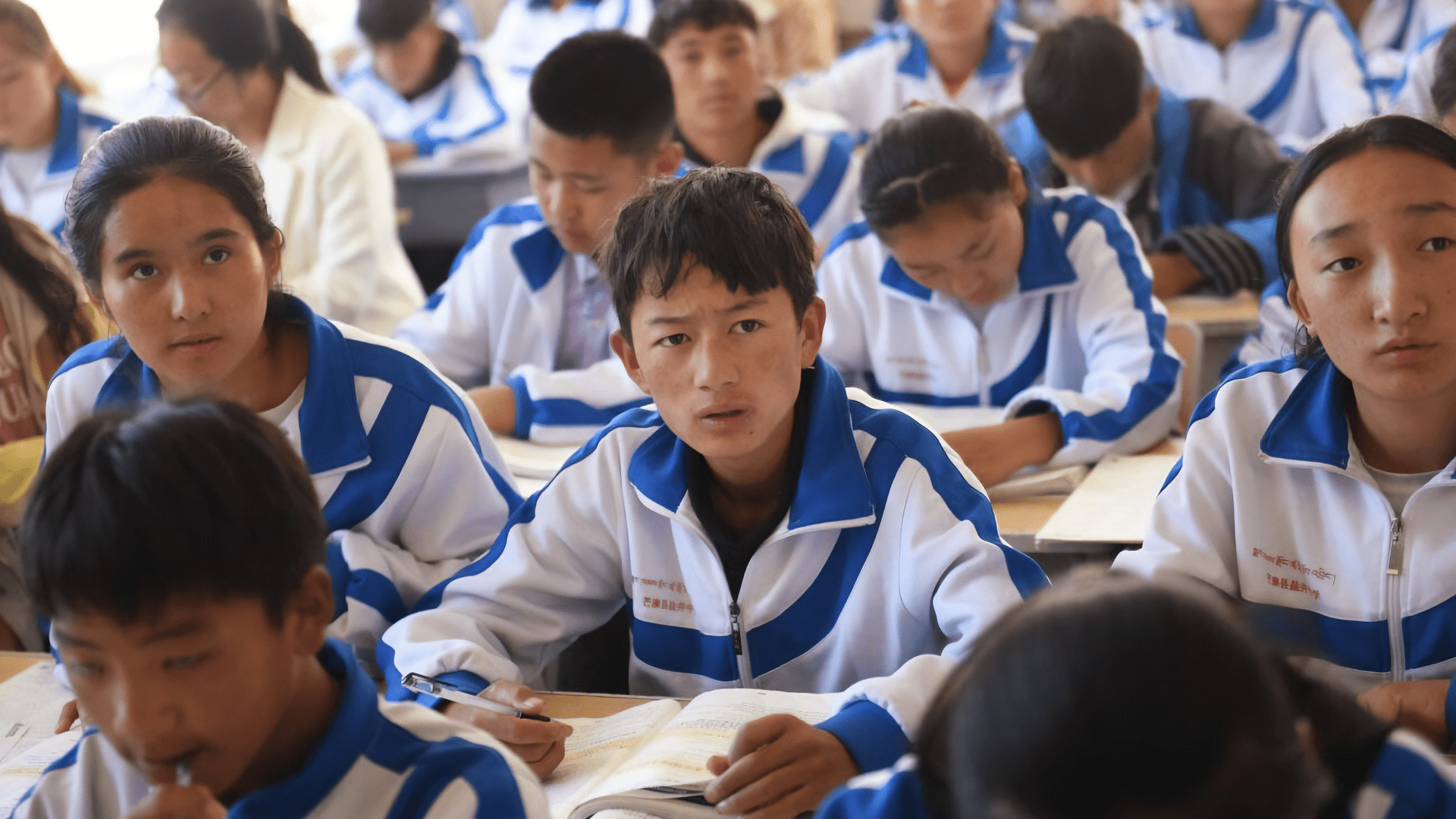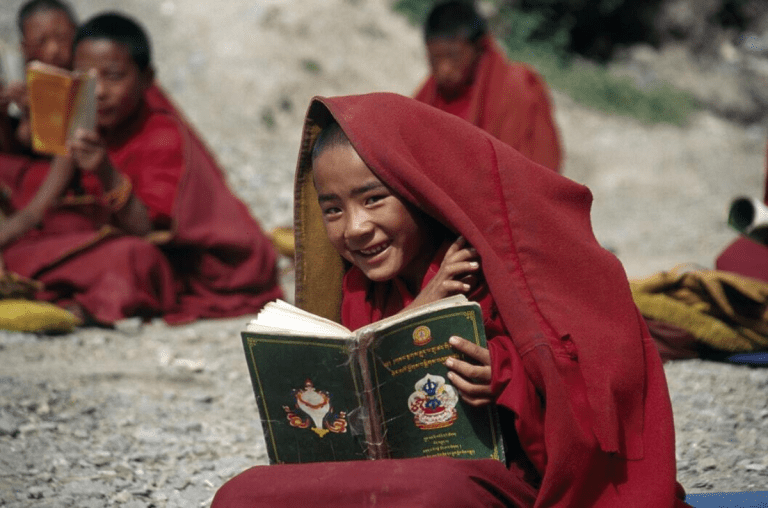In boarding preschools, children between the age of four and six live at school five days a week, where they are immersed in the Chinese language and intentionally cut off from learning in their mother tongue.
800,000 Tibetan children aged six to 18, over three in every four Tibetan students, are living in residential schools and subjected to a heavily politicised curriculum that teaches them they are Chinese rather than Tibetan.
Children are forced into this centralised boarding school system because the CCP eliminates all alternatives: Tibetan-language schools across Tibet are being closed down or demolished, teachers, such as Rinchen Kyi, have been harassed or detained and monasteries – traditionally centres of learning – have been forbidden from giving Tibetan language classes to the lay community. Parents also face threats and intimidation to send their children to these schools.
In the video below, Dr Gyal Lo explains, in his own words, the nature of his research, and the threat that these colonial boarding schools present to the future of Tibetan culture:
The effects
Dr Gyal Lo visited more than 50 such schools before escaping Tibet in 2020. Today, he works to raise awareness of the residential school system and its effects on children in Tibet.
He has summed up the damage caused by the separation of Tibetan children from their parents as “outright cruelty” and described how these policies harm children and families alike.
“I saw in my own family how within three months of being sent to boarding preschool, children began to speak to each other only in Chinese, even though they had been raised speaking Tibetan. When the children went home on weekends, they stayed silent in the house, almost acting like guests.”
Devastating psychological harm is being inflicted on a generation of Tibetan children and parents, including the total alienation of Tibetans from their culture and traditions. In the words of one former boarding school student: “Our teachers drove us to hate our heritage, our elders, even our parents… We felt ashamed of our cultural background”.
